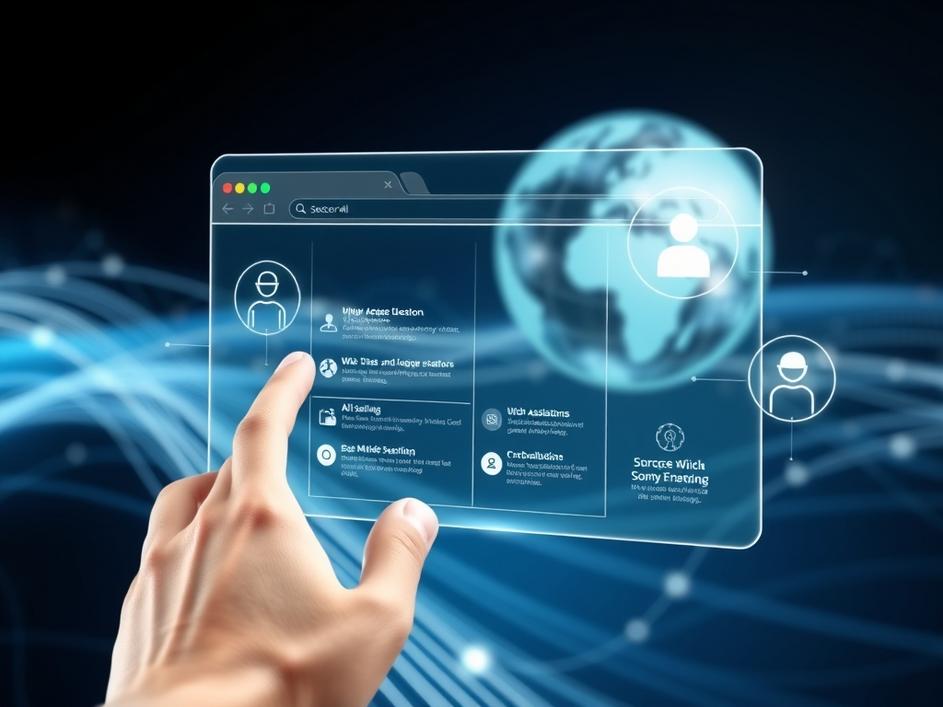


We are a digital agency helping businesses develop immersive, engaging, and user-focused web, app, and software solutions.
2310 Mira Vista Ave
Montrose, CA 91020
2500+ reviews based on client feedback

When you think about browsing the internet, what comes to mind? Probably Chrome, Safari, or Firefox. These tools have been our windows to the web for a long time. But something big is brewing, and it\’s about to change how we all experience the internet. It turns out, the companies making powerful AI tools, like OpenAI, have been watching how we use their chatbots. And what they\’ve seen might just push them to build their own internet browser.
What's Included?
TogglePeople have gotten really good at using AI tools like ChatGPT or Gemini. We ask them questions, get help writing emails, or summarize long articles. But here\’s the thing: we usually do this in a separate tab. You\’re reading an article, you copy a tricky paragraph, switch to your AI tab, paste it, ask a question, then copy the answer and switch back. It\’s a bit clunky, right? It works, but it\’s not smooth. The folks behind these AI systems noticed this pattern. They saw millions of people doing the same dance, constantly flipping between their regular browsing and their AI assistant. This simple observation sparked a big idea: what if the AI wasn’t just a separate tab, but part of the browser itself?
Think about it. If your browser had an AI brain built right into it, things could be different. Instead of copying and pasting, the AI could already know what article you\’re reading. It could offer to summarize it for you, or explain a complex word, all without you having to ask explicitly. Maybe you\’re trying to book a trip, and the AI helps you compare prices across different sites without opening 20 tabs. It\’s not just about searching for information; it\’s about helping you *do* things on the internet more easily. This isn’t just an add-on or a small feature; it’s about making the internet more useful by baking intelligence directly into how you access it. It aims to make your digital tasks much less of a chore.
This shift is about more than just convenience; it\’s about who controls your main gateway to the internet. Google has dominated this space for ages with Chrome and its search engine. Microsoft is trying hard with Edge and Copilot. Now, companies like OpenAI are seeing an opportunity to step in. If they build a browser that\’s genuinely helpful and smart, people might just switch. And if they switch, these AI companies get a direct line to how you interact with the entire web. This means big power, big data, and a chance to shape online experiences in new ways. It opens up questions about privacy, about what information is shared, and about whose rules we play by when we\’re online. It\’s a high-stakes game for who gets to be your internet\’s home base.
My take is that this isn\’t just another browser war. It’s a foundational shift in how we might interact with the entire digital world. For years, browsers have been mostly passive tools; they show you what\’s out there. But an AI-powered browser could be active. It could anticipate your needs, help you create, learn, and organize your digital life in ways we\’re only just starting to imagine. It moves the internet experience from finding information to having an intelligent co-pilot for everything you do online. This also means we need to think carefully about how these tools are built, who benefits, and what kind of internet experience we truly want. It\’s a chance to build something better, but also a challenge to make sure it respects users and their choices.
The idea of an AI company making its own browser feels natural when you consider how many of us already rely on AI for daily tasks. We\’re always looking for ways to make our digital lives simpler and more efficient. A browser that “gets” us, that anticipates what we need, could be incredibly powerful. It could mean less wasted time, more focused work, and a generally smoother online experience. But it also means giving more control to fewer companies. As these big players battle it out for our attention and our default browser choice, we, the users, will be at the center of this change. It\’s a moment for all of us to consider what we value most in our online tools and experiences.
So, will your next browser be made by an AI company? It\’s looking more and more likely. This isn\’t just a technical upgrade; it\’s a redefinition of what a browser can be and how we interact with the vast world of the internet. We\’re standing at the edge of a new era for online tools, where intelligence isn\’t just something you visit, but something that powers your entire journey across the web. Get ready, because the way you browse might be about to get a whole lot smarter.



Comments are closed